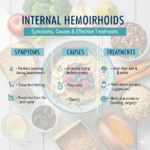Discover how the natural properties of extra virgin olive oil can help treat and prevent gingivitis backed by science, expert advice, and home remedies.
Gingivitis is an inflammation of the gums and the earliest stage of gum disease. According to dental experts, it can be easily prevented and treated with proper oral care. The condition occurs when a soft, sticky, and colorless film of bacteria known as plaque builds up along the gumline. If plaque isn’t removed through regular brushing and flossing, it irritates the gums and leads to inflammation.
Table of Contents
Common symptoms of gingivitis include:
- Red or swollen gums
- Bleeding while brushing or flossing
- Persistent bad breath (halitosis)
- Tender or receding gums
If left untreated, gingivitis can progress to periodontitis an advanced form of gum disease that may cause permanent damage to the gums and supporting tooth structures. That’s why early treatment and consistent dental hygiene are so important.
Natural Remedies and the Role of Olive Oil
There are several home remedies that can help soothe and heal the gums, but one of the most effective and natural solutions is olive oil.
According to Dr. Oz, swishing olive oil around in your mouth also known as oil pulling can significantly improve gum health. Olive oil is rich in antioxidants and monounsaturated fats, which help reduce the buildup of plaque and combat harmful bacteria.
Dr. Oz also suggests that swallowing a small amount of high-quality olive oil may help reduce the presence of the bacterium Helicobacter pylori (H. pylori), which is known to cause stomach infections and ulcers.
Research supports that olive oil has anti-inflammatory properties due to its naturally occurring compounds like polyphenols and oleocanthal. In fact, studies have shown it can act in a similar way to over-the-counter pain relievers such as ibuprofen and aspirin.
This means that swishing olive oil in your mouth not only helps reduce gum inflammation but may also provide mild pain relief, including relief from toothaches.
The Good News
The best part? Gingivitis is completely reversible with the right care and natural remedies. Among the most powerful options is extra virgin olive oil (EVOO) valued for its antibacterial, anti-inflammatory, and healing benefits. Regular use can help strengthen gums, reduce swelling, and promote overall oral health naturally.
Why Extra Virgin Olive Oil Helps
Extra virgin olive oil is rich in polyphenols, vitamin E, and antioxidants that naturally fight inflammation and bacteria. Studies show that olive oil works in a similar way to mild anti-inflammatory drugs like ibuprofen but without side effects.
- Anti-inflammatory : Reduces gum swelling and redness.
- Antibacterial: Inhibits plaque-causing bacteria.
- Rich in antioxidants: Promotes gum tissue healing.
Effective Ways to Use Olive Oil for Gingivitis
1. Oil Pulling
Oil pulling is an ancient Ayurvedic practice that involves swishing oil in the mouth to draw out
bacteria and toxins.
How to do it:
Take 1 tablespoon of extra virgin olive oil.
Swish it gently around your mouth for 10–15 minutes.
Spit it out (in a trash bin, not the sink).
Rinse with warm water and brush your teeth.
Tip: Start with 5 minutes if 15 feels too long.
2. Olive Oil and Turmeric Paste
Turmeric is known for its powerful anti-inflammatory and antibacterial properties.
How to do it:
Mix 1 tsp olive oil with ½ tsp turmeric powder.
Apply gently to your gums with a clean finger.
Leave for 5–10 minutes, then rinse.
Repeat once daily.
3. Olive Oil and Clove Oil
Clove oil contains eugenol, a natural antiseptic that helps relieve gum pain and infection.
How to do it:
Mix 1 tsp olive oil with 1–2 drops of clove oil.
Massage your gums for 2–3 minutes.
Rinse thoroughly with water.
Caution: Use clove oil sparingly; it’s very potent.
4. Olive Oil Mouth Rinse
A simple rinse helps soothe gums and reduce bacterial buildup.
Mix 1 tbsp olive oil with ½ cup warm water.
Swish in your mouth for 1–2 minutes.
Spit out and rinse with clean water.
5. Direct Gum Massage
Massaging your gums with olive oil improves blood flow and strengthens gum tissue over time.
Dip a clean finger in extra virgin olive oil.
Massage gently for 2–3 minutes.
Rinse with warm water.
Additional Tips to Prevent and Manage Gingivitis
Brush and floss regularly at least twice daily.
Use a soft-bristled toothbrush to avoid gum damage.
Limit sugary foods and drinks that feed bacteria.
Rinse after meals to remove leftover food particles.
Visit your dentist every 6 months for a cleaning.
When to See a Dentist
Olive oil can help with mild gingivitis, but see a dentist if
Your gums bleed excessively or persistently.
You notice receding gums or loose teeth.
Symptoms don’t improve within two weeks.
Early dental care can prevent permanent damage to your gums and teeth.
Olive Oil Facts You Should Know
High-quality olive oil should say “Extra Virgin” on the label.
Store olive oil in a cool, dark place heat and light reduce its potency.
In the U.S., trusted certifications include USDA Organic and COOC Certified (California Olive Oil Council).
Pomace or refined oils are more processed and less effective for oral care.
Frequently Asked Questions (FAQ)
1. How Do I Know If My Olive Oil Is Pure?
In the United States, check that the label clearly says
“Extra Virgin Olive Oil” and look for certifications such as:
USDA Organic ensures the oil is free from additives.
COOC Certified (California Olive Oil Council) guarantees authenticity and freshness.
NAOOA Seal verifies that the oil meets international quality standards.
Avoid unbranded or extremely cheap oils they’re often blended with other refined oils.
2. Can I Swallow Olive Oil After Oil Pulling?
No. The oil collects bacteria and toxins while swishing, so you should always spit it out and rinse
your mouth afterward.
3. How Long Does It Take to See Results?
With daily use and good oral hygiene, you may start to notice improvement within
7–10 days.
4. Is Olive Oil Safe for Kids?
Yes, but use smaller amounts (½ teaspoon) and supervise them to avoid swallowing.
5. Can Olive Oil Replace Toothpaste?
No. Olive oil is a helpful supplement for gum health but should be used
alongside brushing and flossing, not as a replacement.
Conclusion
Treating gingivitis naturally with extra virgin olive oil is safe, affordable, and effective. Combined with proper dental hygiene, it helps reduce inflammation, fight bacteria, and protect your smile for years to come.
Remember consistency is key. A small daily effort with olive oil can lead to big, long-lasting results for your gum health.







Leave a Reply